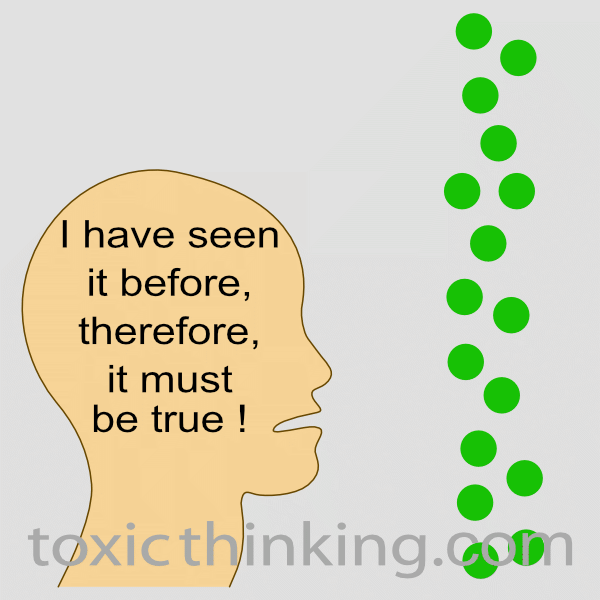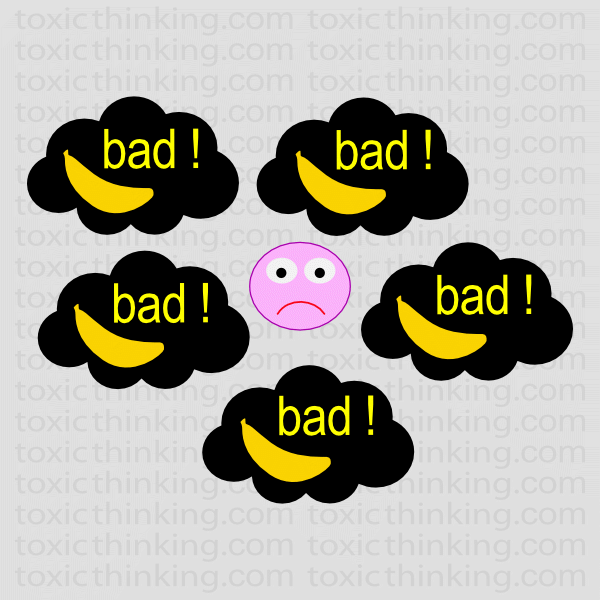When one’s mind comes across some “information”, it has to judge if this information is true or false.

Unfortunately, one’s mind can be quite careless when it comes to analysing if information is true or false. This is especially so when one’s mind sees or hears the same information over and over again, as it can assume that such information must be true just because it is being repeated. Of course, this makes no sense, because whether the information is true or false has nothing to do with whether it was repeated or not. This tendency for one’s mind to consider information to be true just because it has repeatedly come across the same information before is called by psychologists, “illusion of truth” thinking.

By the way, I know that many of the names that psychologists give, such as the “illusion of truth” thinking that we are discussing here, may sound quite weird to you. Please do not worry too much about remembering these official names. Instead, just focus on understanding the various types of illogical thinking that your mind may do. The weird names themselves are relatively unimportant!
As you know, “fake news” has become a big problem in our world. The “illusion of truth” type of thinking plays a big role in fake news and the example below will help you to understand how this happens.
Imagine that someone, as a joke, makes an online video saying that bananas are bad for one’s health because they are yellow in colour. In this video, the person mentions fake studies to support his theory. Of course, the information in the video is not at all true.
Now imagine that a person, who we will call Mary, sees this video about bananas. Also imagine that around the same time Mary sees the video, many of her friends also see the same video in their own homes. Over the next few days, when Mary meets her friends, she repeatedly hears from them the message of the video, that yellow bananas are bad for one’s health. As Mary repeatedly keeps hearing that yellow bananas are bad, her mind thinks, “I have heard it many times before that yellow bananas are bad, so this information must be true”. Soon this thinking makes Mary stop buying bananas, unnecessarily depriving herself of a fruit she used to enjoy.

Politicians, advertising agencies, and fake news outlets all try to use your mind’s tendency to do “illusion of truth” thinking, to convince you that what they are saying is true. When they want you to believe that certain information is true, they just constantly repeat that information to you. This fools your mind into believing, without much analysis, that that information must be true.
So when you see information that is repeated everywhere, don’t just assume that it is true. Do some basic research and enquiries before you make that judgment.